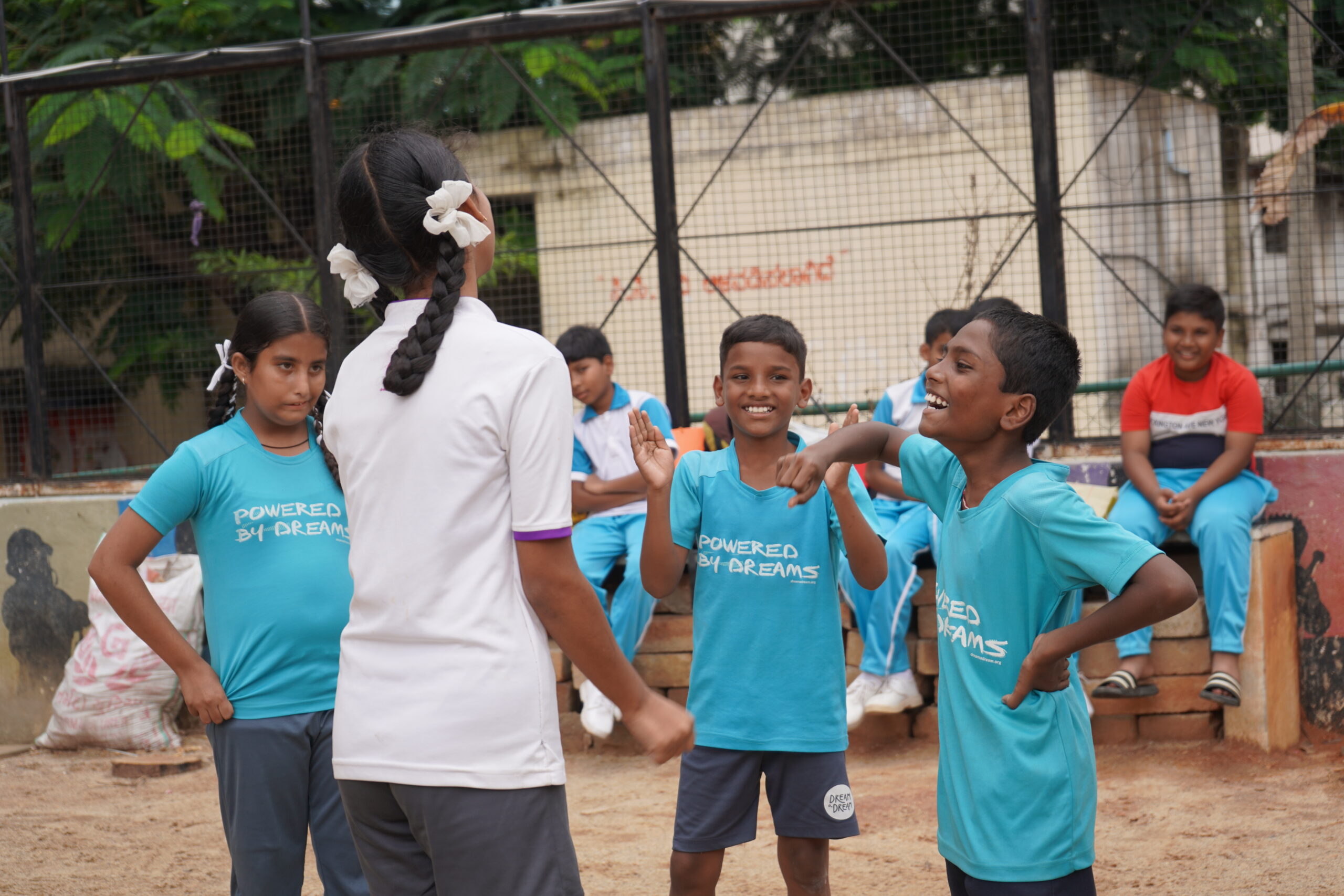For children facing adversity, play is not just a luxury; it’s a lifeline. In the face of formidable challenges such as poverty, violence, and lack of access to education, play serves as a sanctuary—a space where children can find solace, joy, and hope. Toybank is steadfastly committed to rewriting the narrative for at-risk children across India. Our mission is to harness the transformative Power of Play, not just as a form of recreation, but as a fundamental right that every child deserves.
Realising the Right to Play
We firmly believe that play is not a privilege but a birthright, essential for every child’s holistic development. Our work is not merely about distributing toys and games; it’s about creating an environment where children can explore, imagine, and learn through play. Through our innovative play programmes and partnerships, we are actively advocating for the inclusion of play as a fundamental right in policies and legislation. By collaborating with educators and communities, we are working to ensure that the Right to Play is enshrined in India’s societal fabric.
The Transformative Power of Play-based Learning
“Play is the highest form of research.” – Albert Einstein
Research consistently demonstrates that play-based learning fosters cognitive, social, and emotional growth in children. According to a study published in the American Psychological Association, children who engage in pretend play demonstrate greater executive functioning skills and creativity. Similarly, a report by UNICEF highlights the role of play in promoting resilience and emotional well-being among children affected by adversity.
When you are reimagining learning through play, you are giving students opportunities to use their curiosity to ask questions, find out answers and try new things. Traditional classroom practices do not allow a lot of room for trial and error.
Play is focused on learner agency, where children have the freedom to make choices, they get to choose what to do next. It is a known fact that when you are more invested in your own learning, there is a chance that whatever you have learned is going to stay for longer with you. Play also makes learning far more engaging and applicable.
In a recent play session, we asked children at our play centres to ideate and design their own games. It was fascinating to see how deeply they engaged with play and how they used their critical thinking skills to develop games with their teams. Siddharth (name changed), a Class 8 student at Mumbai Public School (CBSE) was interested in an intricate construction game. He is fond of cars and wanted to construct one himself. However, he could not complete its construction within one play session. In the next few sessions, he decided to play the same game. With more time on hands, he could execute it patiently and skillfully. Once he constructed a car, he was curious to set it in motion. He collaborated with his friend and made an attempt to do this with leftover materials such as wires, power banks and more. They fitted a sensor on their vehicle, which allowed the car to detect obstacles on its path and automatically apply the brakes. While the construction game allowed them to build a car, their imagination and creativity led them to set the car in motion. You can watch their creativity in action here.
We leverage play-based learning to bridge educational gaps and unlock the potential of every child. By integrating play into educational curricula, we are cultivating a generation of lifelong learners who are equipped to thrive in an ever-evolving landscape.
Mainstreaming Play for At-risk Children
According to a report by the American Academy of Pediatrics, play is essential for healthy brain development and emotional well-being in children. By mainstreaming play in India, especially for at-risk children, we are not only providing them with a sense of normalcy, but also equipping them with the tools they need to overcome obstacles and build brighter futures. We are not just transforming individual lives; we are reshaping the trajectory of our nation. Together, let us continue to advocate for a world where every child has the opportunity to play, learn, and thrive. We would like to leave you with a quote that defines Play the best:
“It is easier to build strong children than repair broken [adults].”
– Frederick Douglass
About the Author:
Shweta Chari is the Co-founder and CEO of The Opentree Foundation with Toybank — Development through Play being its flagship project.


